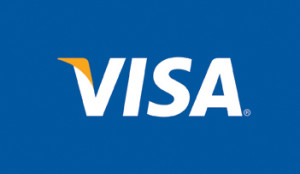ALERT! Phony Calls From VISA Card Services ALERT!
 Currently there is a clever fraud scheme that is striking VISA card holders in the midwest. Card holders are receiving calls from criminals claiming to be VISA Security and Fraud Department. The scam works like this .
Currently there is a clever fraud scheme that is striking VISA card holders in the midwest. Card holders are receiving calls from criminals claiming to be VISA Security and Fraud Department. The scam works like this .
1) Person calling says – “This is (name) and I’m calling from the Security and Fraud Department at VISA. My Badge number is (xxxxx), your card has been flagged for an unusual purchase pattern, and I’m calling to verify. This would be on your VISA card which was issued by (name of bank).”
2) They ask; “Did you purchase an Anti-Telemarketing Device for $497.99 from a marketing company based in Arizona?” When you say “No”, the caller continues with, “Then we will be issuing a credit to your account. This is a company we have been watching, and the charges range from $297 to $497, just under the $500 purchase pattern that flags most cards.” Before your next statement, the credit will be sent to (gives you your address). Is that correct?’ You say “yes”.
3) The caller continues – “I will be starting a Fraud Investigation. If you have any questions, you should call the 1- 800 number listed on the back of your card (1-800-VISA) and ask for Security. You will need to refer to this Control Number.” The caller then gives you a 6 digit number. “Do you need me to read it again?”
4) Here’s the IMPORTANT part on how the scam works – The caller then says, “I need to verify you are in possession of your card.” He’ll ask you to “turn your card over and look for some numbers.” There are 7 numbers; the first 4 are part of your card number, the last 3 are the Security Numbers that verify you are the possessor of the card. These are the numbers you sometimes use to make Internet purchases to prove you have the card. The caller will ask you to read the last 3 numbers to him. After you tell the caller the 3 numbers, he’ll say, “That is correct, I just needed to verify that the card has not been lost or stolen, and that you still have your card. Do you have any other questions?”
After you say no, the caller then thanks you and states, “Don’t hesitate to call back if you do”, and hangs up. You actually say very little, and they never ask for or tell you the card number.
The scammer is after the 3-digit PIN number on the back of the card. For online purchases they need this number to verify they have the card in their possession. If you are a VISA card holder you should understand that VISA has all this information. Consumers need to know that VISA will not call or e-mail cardholders to request their personal account information. Report suspicious calls or emails by calling the number on the back of your payment card or by contacting the FTC’s Complaint Assistant. Cardholders should also know that Visa’s zero liability fraud policy ensures that they are not held responsible for any unauthorized purchases.
If you get a call like this and you suspect something is amiss hang up and call the company back. Never give your credit card information to anyone you are not certain of.
Finally; how did the scammer know your name, address, bank and credit card number? Scammers do their homework on targeted victims or buy stolen or hacked information on black market websites. That information often comes from data breaches.
To learn more about protecting yourself visit the VISA website and test your security IQ. Or call the Visa Global Customer Assistance Center at (800) 847-2911






